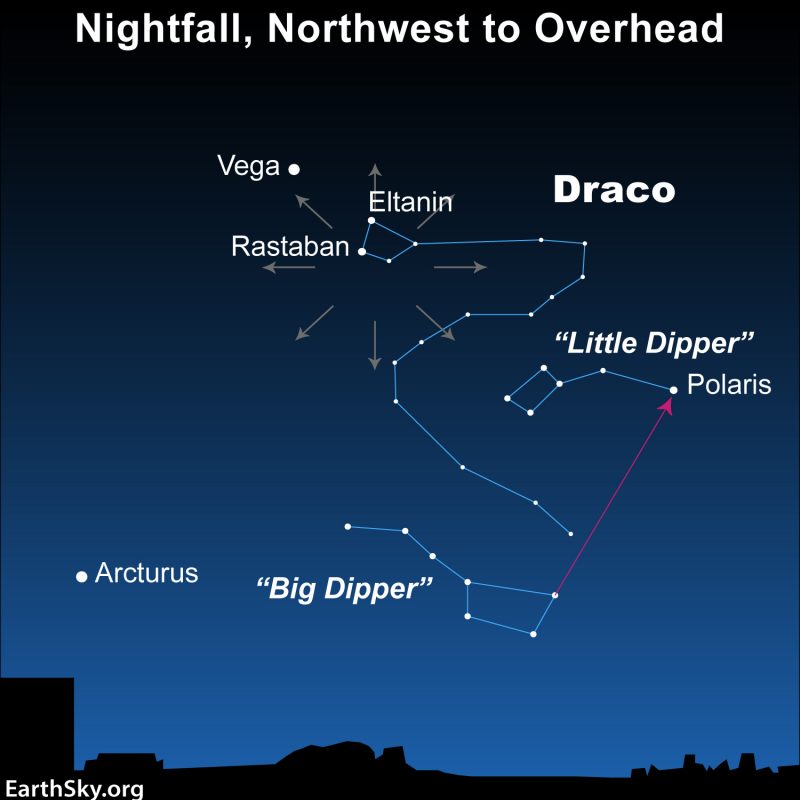Draconid meteor shower 2023 {THIS WEEKEND}: All you need to know (earthsky.org)
Last edited Sat Oct 7, 2023, 09:34 AM - Edit history (1)
Posted by Bruce McClure and Deborah Byrd and Don Machholz
October 6, 2023
The Draconid shower – also called the Giacobinids – is a real oddity, in that its radiant point stands highest in the sky as darkness falls. That’s why you’ll see more Draconids in the evening hours than in the morning hours after midnight.
Predicted peak: predicted* for October 9, 2023, at 7 UTC.
When to watch: The best time to watch the Draconids in 2023 is the evening of October 8 through the wee hours of the morning on October 9. The waning crescent moon (23% illuminated) will not interfere with most Draconid meteors.
Overall duration of shower: October 8 through 9.
Radiant: Highest in the sky in the evening hours. See chart above.
Nearest moon phase: Last quarter moon is 13:48 UTC on October 6. In 2023, a waning crescent moon will be visible on the mornings of October 8 and 9. It likely won’t interfere with the shower.
Expected meteors at peak, under ideal conditions: Under a dark sky with no moon, you might catch 10 Draconid meteors per hour.
Note: The radiant point of the Draconids stands highest in the sky as darkness falls. That means that, unlike many meteor showers, more Draconids are likely to fly in the evening hours than in the morning hours after midnight. This shower is usually a sleeper, producing only a handful of languid meteors per hour in most years. But watch out if the Dragon awakes! In rare instances, fiery Draco has been known to spew forth many hundreds of meteors in a single hour.

***
more: https://earthsky.org/astronomy-essentials/everything-you-need-to-know-draconid-meteor-shower/?mc_cid=38f92262ef
